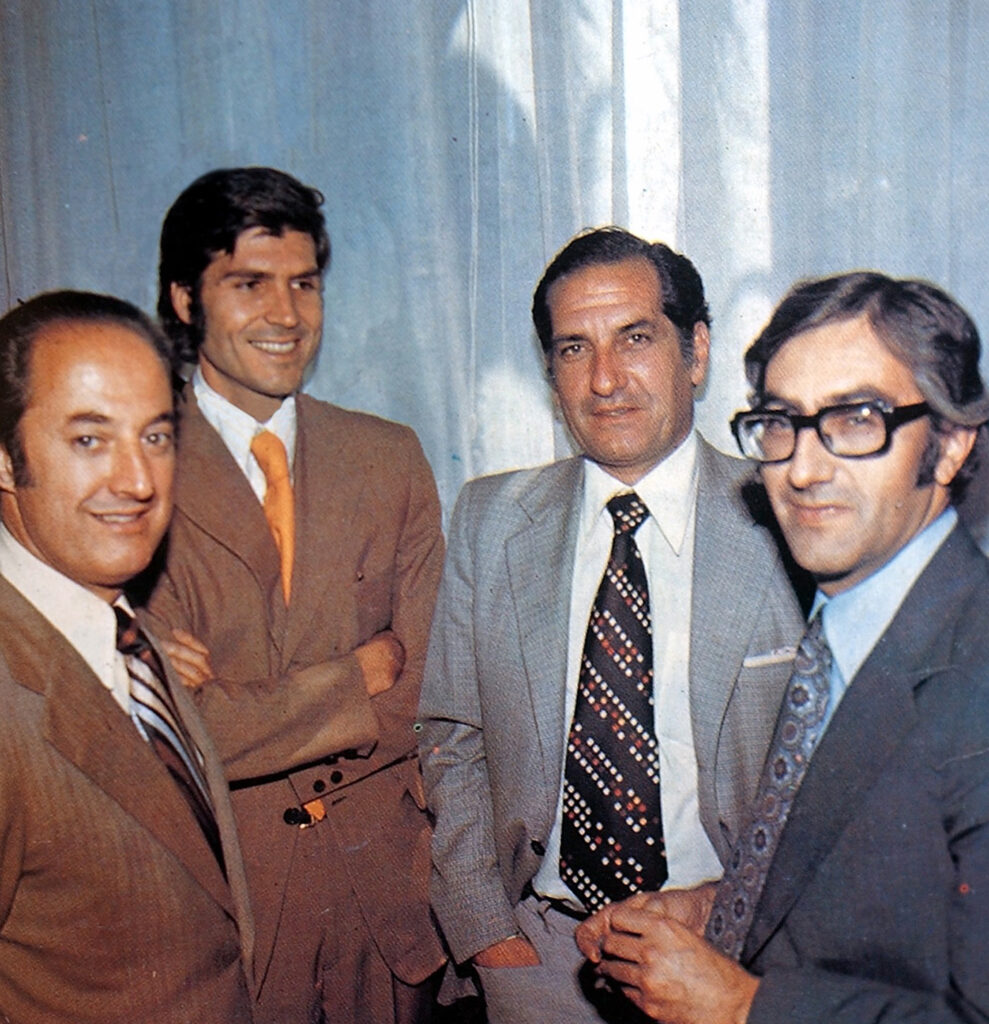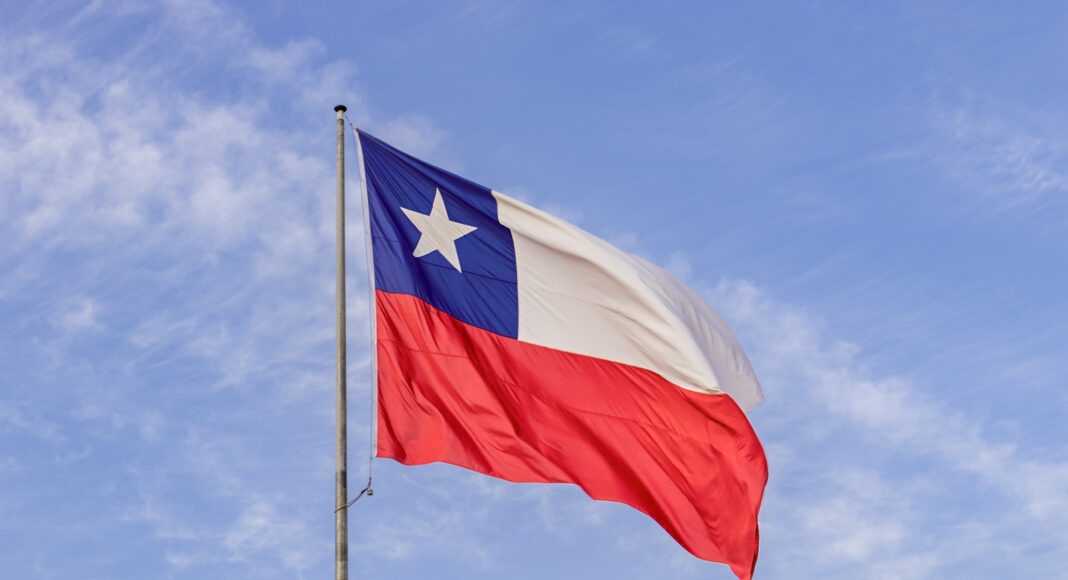In a new book, The Chile Project: The Story of the Chicago Boys and the Downfall of Neoliberalism, Sebastian Edwards details the history of neoliberalism in Chile over the past seventy years. The Chicago Boys—a group of Chilean economists trained at the University of Chicago through the U.S. State Department’s “Chile Project”—played a central role in neoliberalism’s ascent during General Augusto Pinochet’s rule. What follows is an excerpt from the book on University of Chicago economist Milton Friedman’s 1975 visit to Chile to meet with Pinochet and business leaders.
Chapter 5: Milton Friedman’s 1975 Visit and the Shock Treatment
ON MARCH 21, 1975, Milton Friedman, the most famous and polemical economist in the world, met for one hour with General Augusto Pinochet in Santiago. During the meeting, Friedman told Pinochet that the only way to eradicate inflation in Chile, which at the time was running at almost 350 percent per year, was to apply a “shock treatment” consisting of “an across-the-board reduction of every separate [budget] item by 25 per cent.” Friedman noted that Chile’s inflation was a textbook case of monetary excesses. The fiscal deficit, which was fully financed by money printing, was 10 percent of gross domestic product (GDP), and the stock of money held by the public was approximately 3 percent of aggregate income. Back-of-the-envelope calculations suggested that the “inflation tax” required to finance such a deficit was approximately 330 percent each year, a figure that was very close to the actual rate of inflation. Friedman warned the general that the shock treatment would entail substantial short-term costs in the form of high unemployment. He anticipated, however, that “the period of severe transitional difficulties would be brief—measured in months—and that subsequent recovery would be rapid.”
Friedman also told Pinochet that adopting a free-market system was the only way to achieve sustained growth, poverty reduction, and, eventually, generalized prosperity. The overall reform program, he affirmed, should include opening up the economy to international competition, implementing a vast deregulation program, freeing up interest rates and all prices, privatizing state-owned enterprise, reforming labor legislation in order to make hiring and firing more expeditious, and eliminating subsidies to specific industries in the so-called strategic sectors. Many of these recommendations were already in The Brick, a document that Friedman had not read and possibly did not yet even know existed.
Friedman Lectures the Elite
Two days after meeting with Pinochet, Friedman gave a public talk to several hundred businesspeople. The seminar was organized by Chicago Boy Rolf Lüders, who at the time was an executive vice president of one of the most dynamic and aggressive Chilean conglomerates, the BHC (Banco Hipotecario de Chile) Group. During his presentation, Friedman roughly repeated what he had told the general: Chile’s captains of industry were seriously alarmed by what they heard, and they rejected the idea of abandoning gradualism. After decades of heavy government intervention, they were leery of abrupt policies; the prospects of a shock treatment and of rapid trade and financial reforms terrified them. Their concerns about the consequences of rapid changes were shared by a small but powerful cadre of senior officers in the armed forces. In contrast, the Chicago Boys were delighted by Friedman’s statements. Finally a world-recognized authority backed their views publicly and explained to the elites that putting the reforms in place, sooner rather than later, would generate employment, growth, and prosperity. The Chicago Boys hoped that Friedman would help tip the balance of power within the military toward their perspective and that Pinochet would finally choose the free-market alternative over the interventionist option peddled by some army and air force generals. (The navy was, early on, behind the market reforms).
The mood among business leaders was reflected in the questions and answers that followed Friedman’s talk. A member of the audience stated that the fiscal shock would generate a major spike in unemployment, a true “earthquake” that Chile would be unable to withstand. Friedman’s answer was simple and underlined the difference between productive and unproductive employment: “Let’s assume that between 20 and 25 percent of public-sector functionaries are fired. In that case, can anyone explain to me how it would result in a reduction of shoes’ production by 25 percent, or that bread production is reduced by one loaf, or that one fewer shirt is produced…? As you can see, the problem is that the people that are employed in those [state] institutions are not productive, they are not adding anything to the amount of goods and services available in Chile.”
Another question dealt with financial-sector reforms, usury, and speculation. Friedman replied that speculators played an important and positive role in a market economy: “Speculation is just a word and does not correspond to something bad.” He was then asked if the capital market should be completely free or if it should be regulated. Friedman responded that financial markets should be “fully free,” with “free people writing contracts with other free people.” The only role of the government was to make sure that there was no fraud. Another participant asked Friedman what he thought about interest rates at 15 percent per month, and he replied that the real problem was inflation; if prices increased at a monthly rate of 15 percent, then 15 percent interest rates were not high. Figure 5.1 captures the most senior Chicago Boys in 1978, three years after Friedman met with Pinochet and recommended the “shock treatment.”
Regarding the overall costs of his proposed adjustment and reform program, Friedman said, “Chile’s fundamental problems are two: inflation and developing a free market [system]. These are different problems, but they are related, because the faster you strengthen the free market, the easier the transition will be…There should be no mistakes: you cannot end inflation without costs…The simple fact is that Chile is ‘very sick.’ A sick man cannot recover without costs…I must emphasize an extremely important fact: Chile’s problems are, without any doubt, ‘made in Chile.’”

There were also questions about the trade reform. A participant asked whether in a poor country manufacturing firms could compete internationally. Friedman’s answer reflected his uncompromising belief in the benefits of free trade, and emphasized, with great force, the need for trade reform to be accompanied by the appropriate exchange rate policy (see chapter 9 for a detailed discussion on this issue):
Of course, Chilean firms can compete internationally, if the exchange rate is an adequate one…The destruction of capital [during the time of Unidad Popular] means that you are a poor country. But poor countries can compete…Isn’t it true that Japan was able to develop an incredible international presence in spite of the fact that in 1948, when everything started, most of the industrial plants had been destroyed to a much larger extent than in Chile?…I am sorry to say that the notion behind this question is mistaken in a fundamental way: it does not recognize the crucial role played by the exchange rate in allowing a country to compete with other nations, independently of its relative technological and productive development.
Questions and answers continued for more than an hour. There were twenty-two questions in total, some expressing genuine surprise at what Friedman said, some openly confrontational. Friedman explained, with his legendary pedagogical ability, why in his view the costly adjustment period would be short. He repeated that, in the end, a better country would emerge, a country that could grow in a steady fashion. He used a number of examples from other nations’ experiences, mostly from Germany, Japan, and the United States after World War II. At some point Friedman became somewhat exasperated and said that he understood why so many in the audience opposed the reforms’ program: “Very few businessmen truly believe in free enterprise, they often are among its worst enemies. Every businessman favors free competition for others, but not for himself.”
Articles represent the opinions of their writers, not necessarily those of the University of Chicago, the Booth School of Business, or its faculty.
Excerpted from THE CHILE PROJECT: THE STORY OF THE CHICAGO BOYS AND THE DOWNFALL OF NEOLIBERALISM BY SEBASTIAN EDWARDS, published by Princeton University Press.
Copyright © 2023 by Princeton University Press. Used by permission. All rights reserved.






